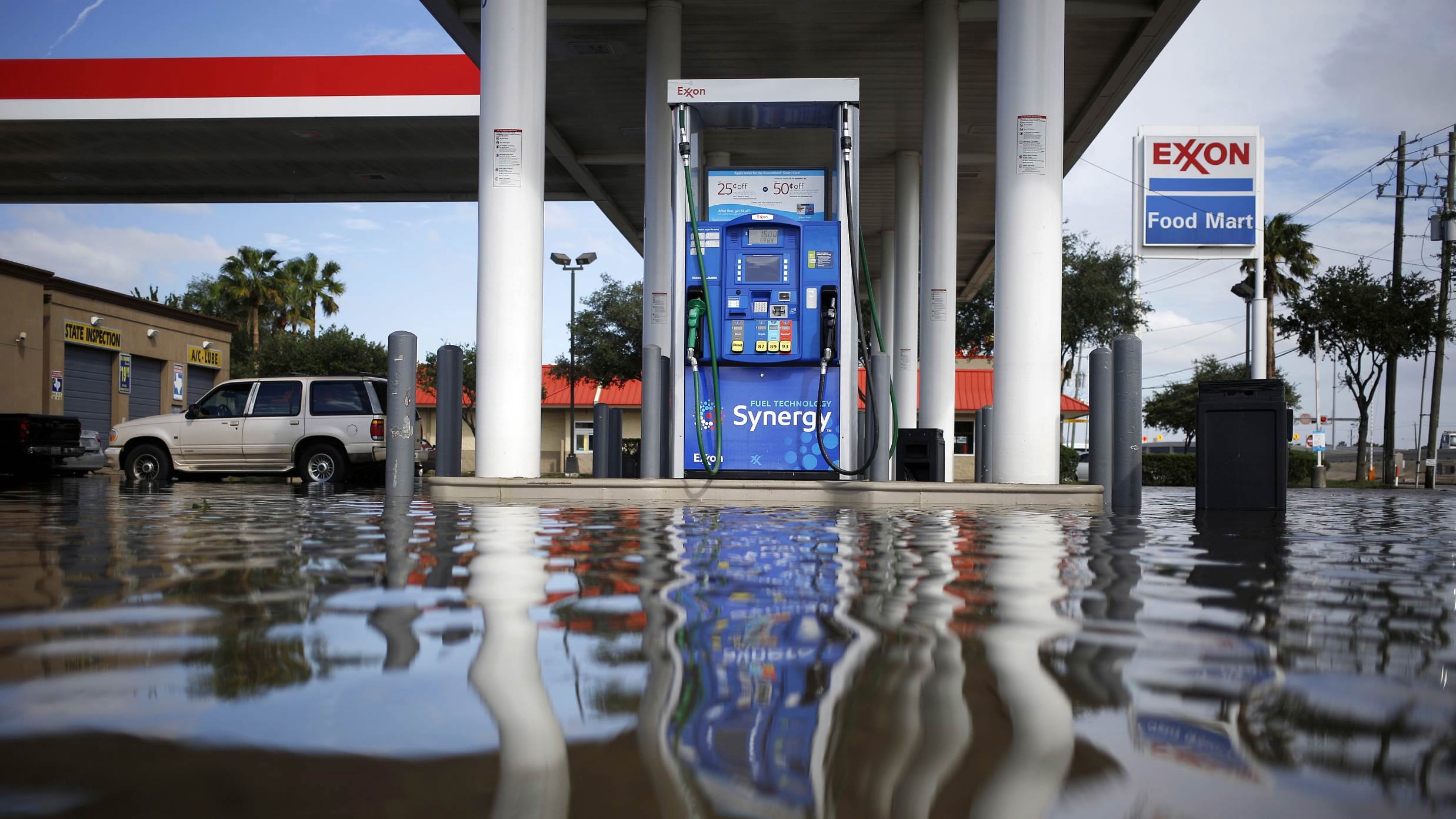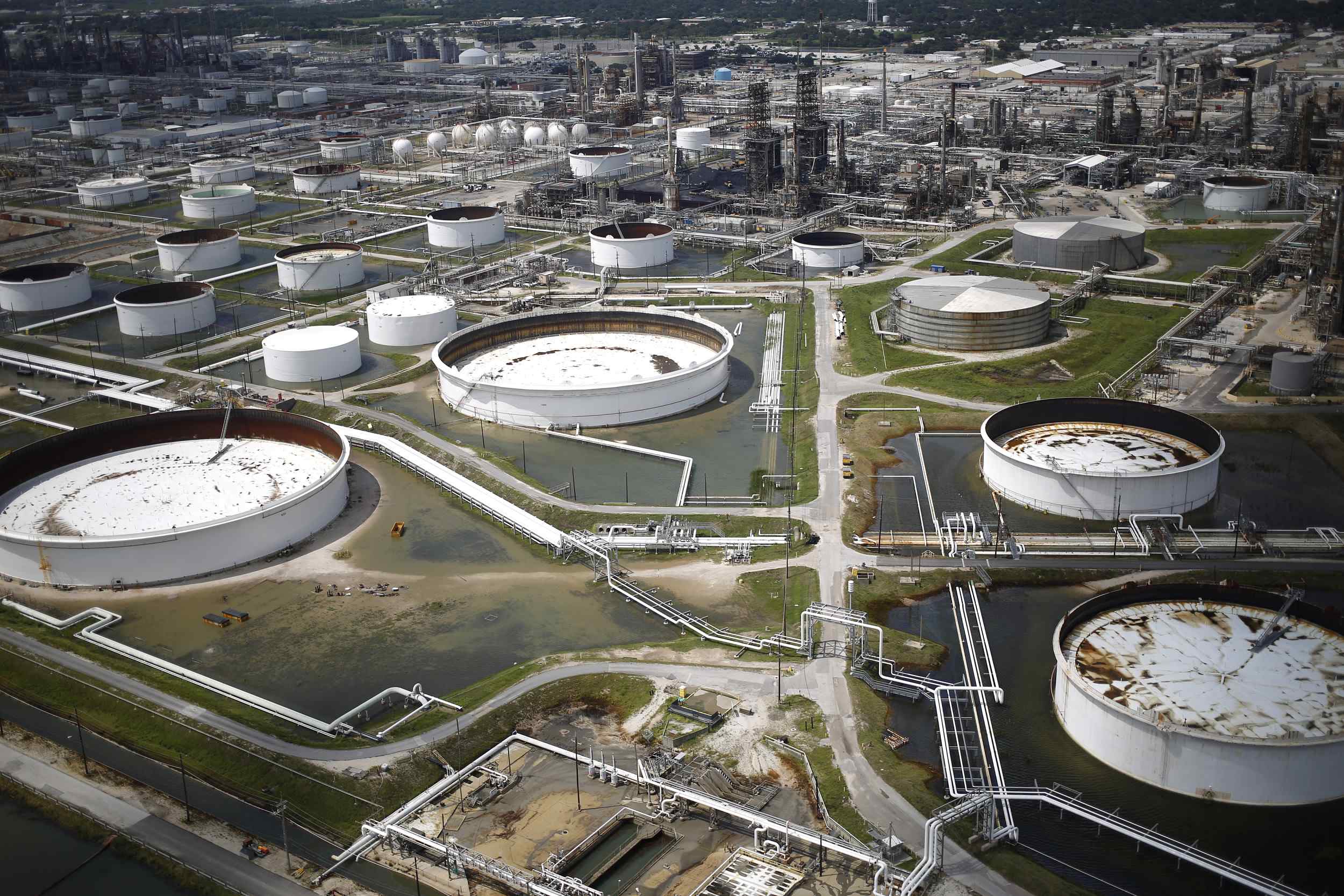
Business
12:53, 02-Sep-2017
Oil prices settle flat after Harvey, global impact felt
CGTN

Oil prices remained under pressure and settled about flat on Friday, while bench mark US gasoline prices slid for the first day since Hurricane Harvey struck the US oil industry heartland, as some refineries restarted operations.
US crude oil settled 6 cents higher at 47.29 US dollars a barrel after trading lower for most of the day.
Brent crude for November settled 11 cents lower at 52.75 dollars a barrel. The Brent contract for October, which expired on Thursday, closed up 1.52 dollars at 52.38 dollars.

Rainwater from Hurricane Harvey surrounds oil refinery storage tanks in this aerial photograph taken above Texas City, Texas, US, on Wednesday, Aug. 30, 2017. /VCG Photo
Rainwater from Hurricane Harvey surrounds oil refinery storage tanks in this aerial photograph taken above Texas City, Texas, US, on Wednesday, Aug. 30, 2017. /VCG Photo
For the week, Brent was up 0.65 percent while US crude posted a weekly decline of 1.25 percent.
Analysts said prices would seesaw until there the market got a clearer outlook for the refinery industry.
“We’re continuing to assess the refining sector and its ability to come back from Harvey,” said John Kilduff, partner at energy hedge fund Again Capital LLC. “The good news for consumers is that it seems some of the units are in the process of getting back in operation.”
The US government tapped the Strategic Petroleum Reserve for the first time in five years, and on Friday authorized an additional release of 3.5 million barrels, adding to the 1 million barrels of crude already cleared to go to a working refinery in Louisiana.
US crude oil stocks fell sharply last week as refineries raised output with the approach of Harvey, the Energy Information Administration said.
Global impact
In Venezuela, where financially strapped state-run PDVSA faced the possibility that scheduled deliveries, tankers floating offshore for weeks due to non-payment, will now travel to other Latin American destinations.
At least two cargoes scheduled to deliver to Venezuela currently in the port of Curacao are now expected to be delivered to Ecuador. Mexico, Brazil, Colombia and other countries were also seeking to tap some of the 7 million barrels of fuel sitting in the Caribbean sea.
In Brazil, state-controlled oil company Gasolineeo Brasileiro SA has hiked gasoline and diesel prices twice for September to match spikes in US prices caused by Harvey. Elsewhere, OPEC officials voiced frustration that Harvey did not boost crude prices, despite the major disruption of US energy infrastructure.
The US Customs and Border Patrol said it received a request to waive the Jones Act, which mandates the use of US-flagged vessels to transport merchandise between the nation's ports.
Supplies from distant markets may not arrive soon enough to avert a crunch due to partial Colonial Pipeline closure.
“We are going to have outages from Texas to Boston,” said one East Coast market source. The market is “way under-appreciating the magnitude of this.”
Several East Coast refineries have run out of gasoline for immediate delivery as they sent fuel elsewhere. Concerns were mounting ahead of the US Labor Day extended weekend.
Source(s): Reuters

SITEMAP
Copyright © 2018 CGTN. Beijing ICP prepared NO.16065310-3
Copyright © 2018 CGTN. Beijing ICP prepared NO.16065310-3